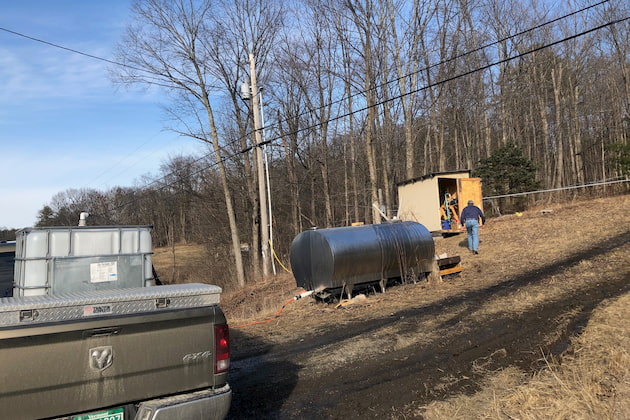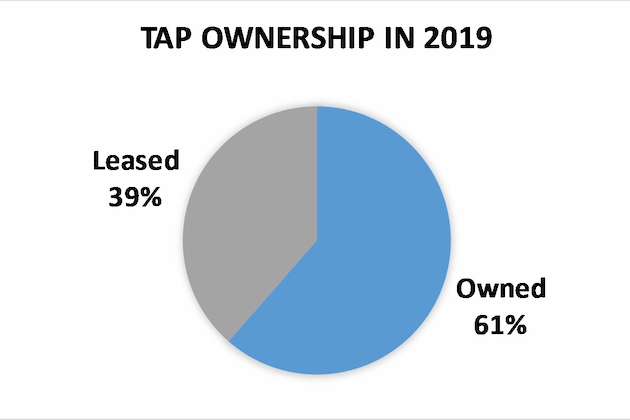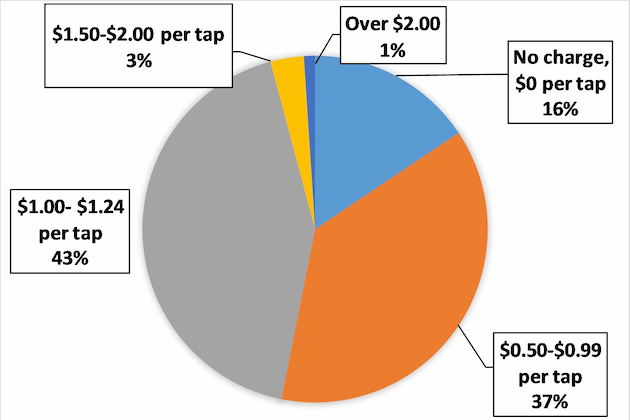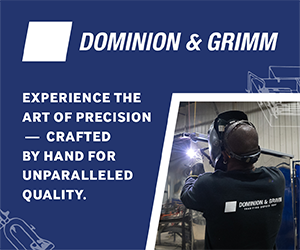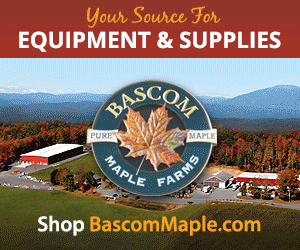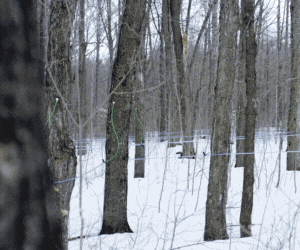UVM Proctor Page
Rental rates and leases to right size your business
5,000 taps on rented trees the magic number to profit, say Vt. researchers
By MARK CANNELLA, UVM EXTENSION | APRIL 14, 2020
MORRISVILLE, Vt.—Getting to at least 5,000 taps and utilizing rented trees may be the key to economic viability, according to new research from University of Vermont Extension.
Getting a maple business to a profitable scale is a primary goal for commercially-minded producers seeking meaningful income from their business.
A large equipment investment is needed to run a modern and efficient maple enterprise.
The prospect of purchasing more forestland may not be financially feasible for everyone that seeks to expand their enterprise.
Renting taps from other landowners can be a good approach to access more woods when a land purchase is not immediately possible.
Current research and outreach programs at UVM Extension focus on economic viability of maple, forest management and forestland access to support sustained growth of the industry.
University of Vermont Extension conducted a regional survey of northeastern maple producers in 2019.
Completed surveys were returned by 312 maple producers across several northeast states.
The respondents of the survey represented 1.2 Million maple taps in the 2019 season.
Forty-two (42) percent of respondents indicated they leased woods or taps in 2019, totaling 479,759 taps. Roughly 39 percent of the total taps managed by survey respondents in 2019 were leased and 61 percent were owned.
The 2019 Maple Producer survey asked producers about the economic viability of their business.
Producers chose between three options: 1) Economically Viable (Covering all costs, paying family labor at least average prevailing agricultural wages and generating a profit); 2) Sustainable (Not “Economically Viable” but still able to maintain the business with non-maple income or other savings) or 3) Vulnerable.
Overall, 25 percent of the business owners surveyed indicated they were “Economically Viable.”
When the survey group is sorted into groups based on the scale of the business, however, an important pattern emerges. “Economic Viability” increases, jumping from 25 percent to 60 percent of producers, for maple businesses that own at least 5,000 taps.
The important finding is that these producers are not solely operating from the maple woods they own.
Seventy-percent of these businesses are using rental agreements to expand their overall tap count.
Renting access to forestland and more maple taps is a key strategy for the group of operators that are demonstrating stronger profitability.
Given the cost to set-up an efficient and productive maple business it is not always possible to purchase additional forest land outright and immediately.
Producers should consider relationships with forest landowners to expand the acreage of their enterprise.
UVM Extension has published a new “2020 Sugarbush Lease Guide” that serves as a formal lease template and includes the considerations that maple operators and forest land owners should discuss to reach satisfactory terms.
This guide and more maple business resources can be found online at www.maplemanager.org















